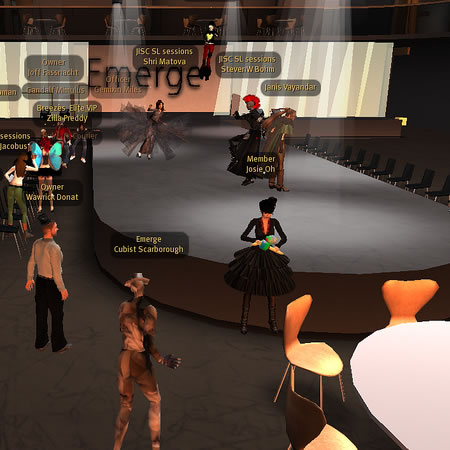
With the current situation impacting on conferences, events and teaching, there is a lot of talk and posts out there on how to deliver online teaching, as well as moving conference to online events.
Ten years ago or so, Jisc ran for a few years an online e-learning conference. I participated in these as a delegate, a keynote speaker and for some of these I was the conference blogger and wrote a blog called “Letters from the Edge”.
It can be useful to have an online space (a blog) where someone addresses what is happening in the conference (and elsewhere).
I also published some ramblings about the advantages of an online conference on my blog about advantages of online conferences, many of which still stand up today and are also useful potentially for those who are planning some online delivery.
In this post I discuss some of the challenges, but also many of the advantages of an online conferences.
A video about the advantages of an online conference, however it doesn’t take self-isolating into account.
This post based on the experiences of supporting and delivering webinars over the years and some tips.
This post talks about the discussions that are possible in an online conference. You will find much more discussion and debate takes place than at a traditional conference. Not only that, the conversations happen over time, allowing for reflection and checking sources. It’s also all written down. This makes it very easy to check back and see what someone said before making a different point. Sharing links and ideas is also so much easier too.
Wherever you are… is a short humorous video, that looks at how you can participate in conferences from any location, which for most people will be home these days.
Online conferences can facilitate more in-depth discussions than at traditional conferences.
Due to the textual and asynchronous nature of an online conference discussion it is possible to engage in the conversation either immediately or after a period of reflection over the two days of discussion for each of the themes. it’s a real opportunity to take the time to debate the issues that arise out of the presentation with fellow practitioners and experts.
I am sure if you ask a lot of people why they attend conferences, in addition to the keynotes and sessions, one aspect that will come out is the networking and social aspects of the conference. So isn’t all this social and networking all lost with an online conference, I hear you cry! Well in a way, yes! And in a way, no!
Some may find it useful in these difficult and challenging times.






